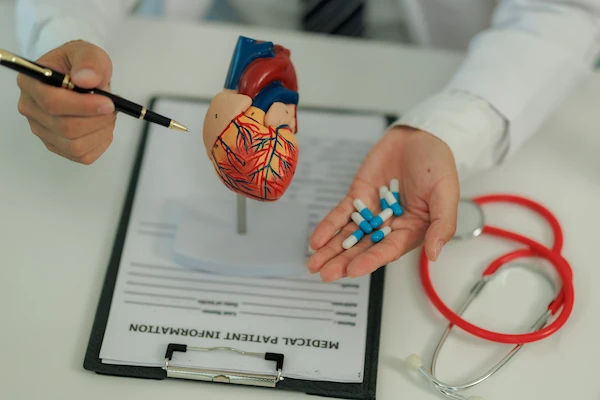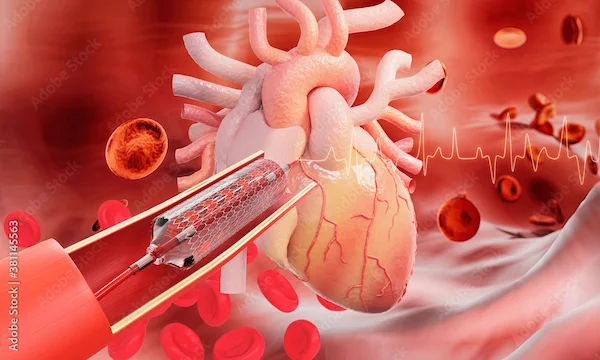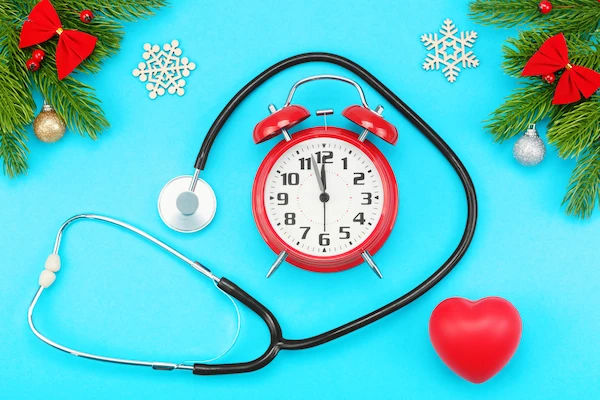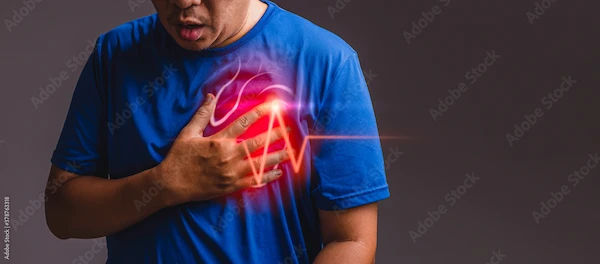- Male
- 24 Years
- 29/01/2025
I'm feeling really worried because I've been dealing with fatigue for about 20 days now, and it just doesn't seem to go away. I've also had some headaches on and off. Could these be signs of a heart attack?
Answered by 1 Apollo Doctors
Fatigue and headache are not specific symptoms of a heart attack. However, it is important to pay attention to any unusual symptoms you may be experiencing. Fatigue and headache can be caused by various factors such as stress, lack of sleep, dehydration, or underlying medical conditions. It is recommended to consult a healthcare professional for a proper evaluation and diagnosis.
Dr. Dr Khaleel Suggests...
Consult a Cardiologist
Answered 04/07/2025
0
0

More Cardiology Health Queries
View allI'm really worried about my relative who had MVR surgery a year ago. Yesterday, he experienced severe abdominal pain and his blood pressure shot up to 190100, but it's back to normal now. His troponin level came back at 0.0527. Could you help me understand what this means for his heart health? Should we be concerned?
That says its positive,immediately get an ECG done and visit Cardiologist for appropriate management
Answered by 1 Apollo Doctors
I'm really worried about my wife. She's been feeling some pain on the left side and backside of her heart after getting her first dose of Covaxin in September 2021, and then she noticed some blood clot patches on her body. Her heart rate also suddenly increased to around 130 at one point. We saw a general physician who mentioned something about Gilbert syndrome and suggested beta blockers, specifically Metalour X25, for life. But I'm really concerned about any side effects on her or our child, especially since she's been managing everything on her own for the last two years. Are there any alternatives in Ayurveda that might work instead of lifetime medication? Would love to hear your thoughts on this!
Metalour X-25 is a brand name for Metoprolol, which is a beta blocker commonly used to treat various heart conditions, including high blood pressure and certain types of heart disease. In the case of Gilbert syndrome, beta blockers like Metoprolol can help manage symptoms such as rapid heart rate. The dosage of Metoprolol can vary depending on the individual's condition, but a common starting dose is around 25-50mg once daily. It is important to follow the dosage instructions provided by the prescribing physician. Beta blockers, including Metoprolol, are generally well-tolerated, but like any medication, they can have side effects. Common side effects may include fatigue, dizziness, and cold hands or feet. It is important to monitor for any unusual symptoms and report them to the healthcare provider. As for alternatives in Ayurveda, it is always recommended to consult with a qualified Ayurvedic practitioner for personalized recommendations. Ayurveda offers a holistic approach to health and may have alternative treatments or lifestyle recommendations to support heart health. Some Ayurvedic herbs and practices that are commonly used to support heart health include Arjuna, Ashwagandha, and stress-reducing techniques like yoga and meditation. Ultimately, the decision to take Metoprolol or explore Ayurvedic alternatives should be made in consultation with healthcare providers who are familiar with the individual's medical history and current health status.
Answered by 1 Apollo Doctors
I'm really concerned about my dad's health. His LVEF is at 25, and the cardiologist is recommending an angiography. Im not sure what we should do next. Could you give me some guidance on this?
no problem it's normal
Answered by 1 Apollo Doctors
Disclaimer: Answers on Apollo 247 are not intended to replace your doctor advice. Always seek help of a professional doctor in case of an medical emergency or ailment.





